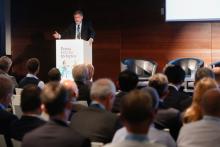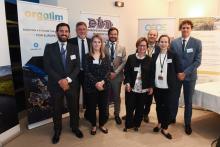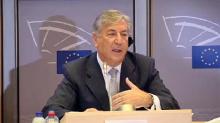With the start of the new
This was the key message during a high-level policy discussion at the
“When talking about jobs, innovation and growth, the European machinery industry has an important contribution to make. One critical question will therefore be whether EU initiatives in the next five years will be able to structurally support the industry to unleash its full potential and help to bring growth back to Europe,” underlined Rübig.
Following his opening remarks, business leaders from the European machinery industry highlighted key EU initiatives which could make a difference in the years ahead.
Eric Lepine, managing director of
“Our industry is on track and committed to delivering innovative machines that will match the new emission limits which will be the strictest in the world. However, because of the very wide variety of different products in our industry, it will remain a complex challenge to adapt all our products in time. Therefore, we need a swift adoption of this Regulation, no later than Q1 2016, in order to give the industry adequate time to transition to these new emission limits. We also need the issue of niche products and replacement engines to be addressed,” he stressed.
Richard Markwell, vice president and managing director, Massey Ferguson, EAME and president of the European agricultural machinery association, CEMA, underlined the importance for the EU to defend and promote greater and freer cross-border trade.
“The European machinery industry exports a growing share of its production outside of Europe. Trade policy initiatives such as TTIP will be key to deliver jobs, innovation, and growth both at home and abroad,” he said.
Jan van der Velden, senior manager systems at Vanderlande Industries and president of the European materials handling federation FEM, stressed that the “industry’s competitiveness does not come from low wages and low production costs, but from our reliability, know-how and innovation.”
He added: The EU regulatory framework must help preserve and develop these strengths rather than limit them.”









